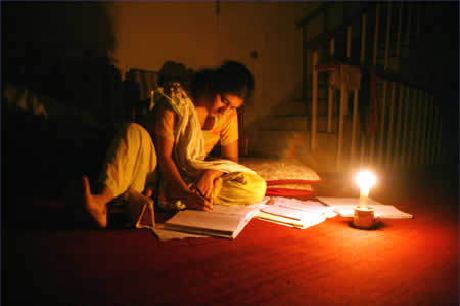Adil Najam
Are we really serious about energy conservation? And, by ‘we’ I mean all of us, not just the government.

The government is making a high profile move on the subject by announcing new policies for energy conservation, better policing of energy abuse, and of new power generation. We have written about energy often (here, here, here, here, here) and our post on solar energy continues to get much attention.
As someone who works in this area, I know that (a) this is the single most important economic leverage available to economic decision makers in Pakistan, and (b) while not easy, this – unlike other pressing issues, like water, for example – is an area where something could actually be done; because technically and even fiscally there is a real set of useful things that are actually doable.
And, yet, I find my self sadly cynical that things will change. Not just because I am still not convinced that this is a priority for the government and decision-makers but also because I know that our media is too interested in the ‘sexy’ stuff of politics to care much about this, and frankly given all we see in our own energy usage (rich or poor) I am not sure if even we consumers are willing to do anything more than crib (specially, since much that needs to be done for conservation needs to be done by us). Sadly, we pay attention only when things go so very bad that people revert to energy violence.
I feel bad about being so cynical. And I sincerely hope that I am wrong.
P.S. On a related note, here is an op-ed I just published on Pakistani environmentalist Dr. Tariq Banuri’s run to be the next United Nations climate change chief.



















































check this: 424 angel number
I wonder why don’t they manage demand to keep it within supply. There was no load shedding when there was no National Grid and WAPDA…and demagogic conscienceless politicians; as then demand for electricity connection (effective demand for power) was kept within capacity for supply by the respective power supply company.
If they are serious they can control demand even now by banning total use of ACs (The use of which in any case is immoral as well)by substituting it with room coolers and stopping free and wasteful use of power by WAPDA itself and its free use in tribal territory, the burden of all of which is being borne mainly by Punjab and the Federal Area, where the loss is the least.
Adil, please look into Pakistan Sustainability Network.
http://www.facebook.com/sustainablepak
This is a network of individuals and organizations that are doing on-the-ground work. Recently launched Clean Pakistan campaign:
http://www.whatswiththeclimate.org/2010/04/27/psn- initiates-clean-pakistan-campaign/
The newly-launched website of PSN:
http://sustainablepakistan.org/
…
This is the kind of citizen-led initiative that can create real change. The need is to have more citizens involved. We need 180 million people taking small steps — thereby making a giant leap happen.
Charity begins at home, and, by extension, loadshedding should begin at home, too, of the Prime Ministers and the Chief Ministers, first of all. And our ever-grinning President, for that matter.
I think the Pakistani nation will stop protesting if the leaders themselves prove themselves to be one of the people, and turn their own central air conditioning off for a few hours each day, and just have a few photos taken sitting/having meetings in front of a table fan. There should be no shame in it. No more 5,000 dollar designer suits, and no more bottles of chilled mineral water on display, please. such a display of unity will be the first step towards calming the seething hostility (totally justified, I must add).
My own experience of load shedding is that it has been the most horrible feeling I have had so far. And I am talking of almost twenty years ago, when things were ten times better than today. When the ceiling fan stops rotating at 2 in the morning, and your breath becomes laborious and the mosquitoes step up their relentless attack, that is hell, let there be no doubt about it.